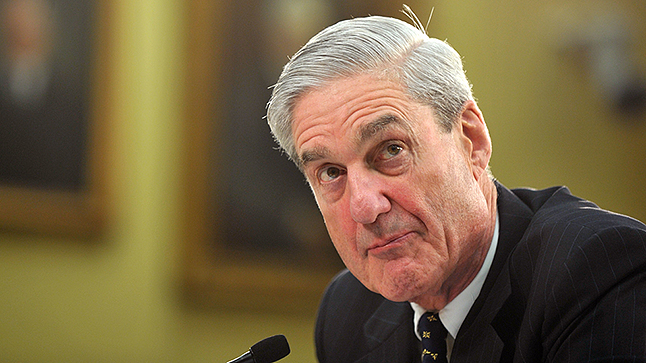When CNN broke the news yesterday that Robert Mueller would be submitting his report to Attorney General Bill Barr as soon as next week, many people who have been following this investigation closely were skeptical, primarily because so much of the probe is still in process. A list of people who were obviously under investigation, but whose cases haven’t been resolved yet, gives you some idea of why they questioned the news.
As we wait to see what happens next, it would be helpful to remember a story ABC News reported back in November, just after the midterm elections.
Nearly three dozen sealed criminal indictments have been added to the federal court docket in Washington, D.C. since the start of 2018.
Sealed criminal court files are assigned a case number, but do not indicate the identity of the parties or the nature of the charges, so it is impossible for the public to discern what those sealed cases contain.
But several legal experts told ABC News the number of sealed cases awaiting action right now is unusual. Fourteen were added to the docket since late August alone, a review by ABC News has found, just as the midterm elections were drawing near and longstanding Justice Department policy precluded prosecutors from taking any public action that could appear to be aimed at influencing political outcomes.
And the inadvertent discovery on Thursday night of what appear to be secret charges pending against WikiLeaks founder Julian Assange has drawn fresh attention to the mystery.
It is important to keep in mind that no one knows whether these sealed indictments are part of Mueller’s investigation. But as the report suggests, many were added during the time right before the midterm elections, when Justice Department policy discourages any public action that could interfere with the outcomes.
If any of those sealed indictments came from Mueller’s team, it was wise on the part of prosecutors to submit them prior to the midterm elections. The Special Counsel can only indict someone with the approval of the attorney general. Prior to the midterms, Deputy AG Rosenstein was overseeing the investigation. On the day after the elections, Trump appointed Matt Whitaker as Acting Attorney General. He would have been the one to approve any indictments since November, with AG Barr taking over the responsibility after he was confirmed last week.
There’s one final point to keep in mind. The regulations governing a special prosecutor state that “at the conclusion of the Special Counsel’s work, he or she shall provide the Attorney General with a confidential report explaining the prosecution or declination decisions reached by the Special Counsel.” In other words, the focus of Mueller’s report will be to explain his indictments and plea agreements (as well as those he didn’t indict).
I highly recommend Garrett Graff’s latest piece titled “7 Scenarios for How the Mueller Probe Might Wrap Up.” As we await the next steps in the Special Counsel’s investigation, he reminds us of two important things.
Indeed, there have only been two immutable truths thus far in the Mueller probe: First, every move has surprised us, both in timing and content; second, every court filing has been more informed, detailed, and insightful than anyone imagined, and shown us that what we knew publicly was only the tip of the iceberg. There’s no reason to think that Mueller’s denouement will be anything different.
Attorney General Bill Barr might be able to suppress what Mueller writes in his report. But a sealed indictment can only be dismissed by a judge. That might be how Mueller surprises us this time.



